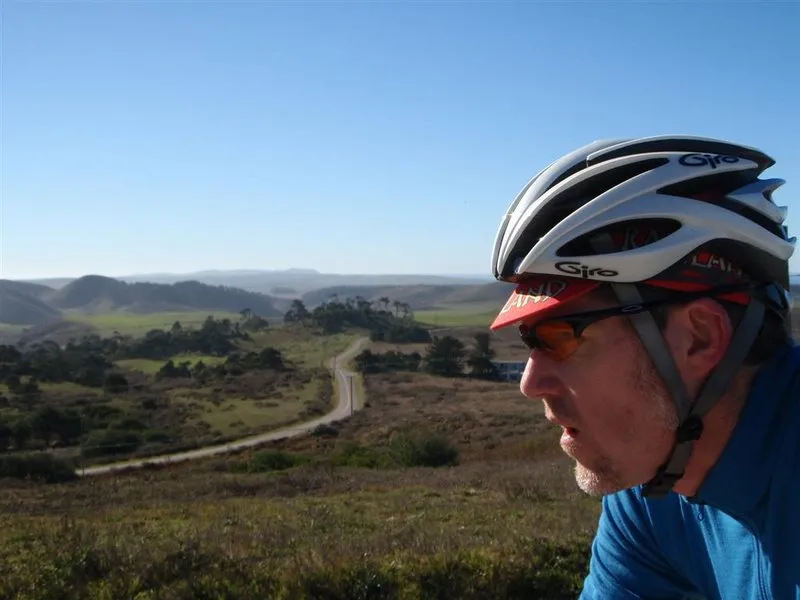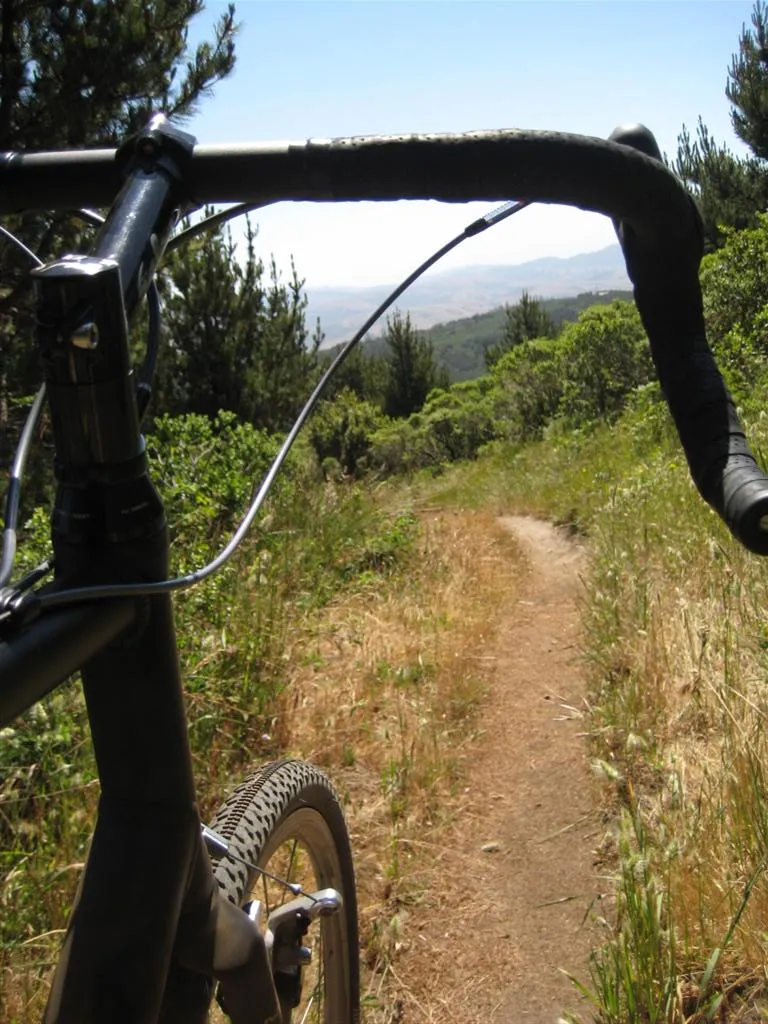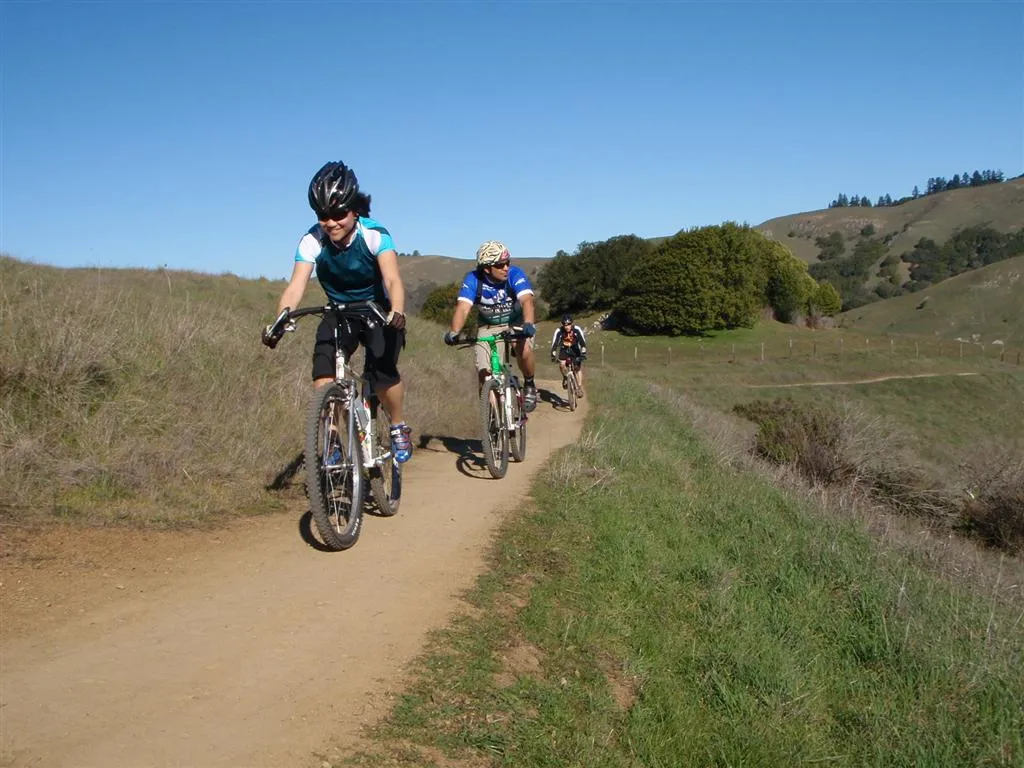Recently, there has been talk about opening four singletrack trails to bikes in Marin County. Yes, that's four, as in four trails out of the hundreds in the county. You'd think that opening four trails would be fairly benign, but nope, it's got anti-bike folks all up in arms.
I started this blog several months ago and didn't follow up to finish it until recently. I'm not an activist by any stretch of the imagination. This is probably because I'm not at any end of any spectrum. I feel that I am middle-of-the-road with regards to just about anything I do.
The conflict between bicyclists and equestrians and bicyclists and pedestrians is an odd one. All three groups enjoy being outside. All three are passionate about their activity of choice. All three spend considerable sums of money on their mode of locomotion and the bits and baubles that go along with each activity. And all three are members of the same community.
My choice for outdoor activity is the bicycle. I don’t like the term “mountain biker” or even “biker”. I am a bicyclist. Sometimes I do ride a mountain bike in the dirt. Sometimes I ride my road bike in the dirt. It’s an odd juxtaposition in that the mountain bike was arguably created on the flanks of Mount Tamalpais and yet it is outlawed on its trails.

The author enjoying a Marin County ride near Point Reyes, California
I’ve read arguments about keeping bikes off singletrack trails. They usually always point to potential conflict and potential damage to the trail. However, I’ve never had a conflict with an equestrian or hiker and I’ve never pummeled a trail into fine dust or grooved one down so that it is a 10-inch trough.
What the studies do fail to mention is that the other groups simply don’t want bicycles on the trails. They were there first and they want the trails to themselves.
There’s nothing wrong with that. I’d love to have something like a beautiful trail all to myself. I’d love to have the freeway all to myself when I drive into the city. I’d love to have a row of seats on a crowded airplane to myself when I fly. But those things just aren’t going to happen and I really don’t mind sharing the freeway when it becomes a parking lot or a row of seats with people on either side of me on a 14-hour flight (and I’ve taken over 70 crowded 14-hour flights). And I don’t mind sharing a trail with equestrians or hikers.

The types of conflict that may be experienced are largely self-created. Either the person not on the bike just dislikes bikes and the situation becomes confrontational when faced with a bike, or the person on the bike wonders aloud why the person can’t see that they are coming and just get out of the way. In either case, education and respect are great tools to eliminate conflicts.
After all, we educate out children to be tolerant of people who are different than themselves. Why did the kids who learned tolerance forget those lessons and grow up to be intolerant of bikes?
Initially, almost a quarter of a century ago, bikes were banned from trails because of perceived environmental issues as a result of tyres making contact with the trail. When that argument was shown the door, the next tool the anti-bike advocates used was safety, a very emotional tool.
No one wants to be in an un-safe situation. Bicyclists threaten the safety of equestrians and hikers. That is a very loaded statement and one that the anti-bike folks use judiciously.
Playing to emotions is a powerful tool. A bicyclist riding and passing a hiker at reasonable speed can be an incredibly safe experience, much like the fact that cars traveling in the opposite direction pass each other at combined speeds approaching 120mph. Yet, we feel perfectly comfortable with a car hurtling toward us at a speed that would reduce both cars to rubble only to pass by less than a body length.
That feeling of safety can happen on the trail with all users – folks on bicycles, folks on foot and folks on horseback. How that happens is through education and mutual respect. I don’t have the answers as to how that education takes place or how it would be enforced (self-enforcement by user groups has been effective in some situations), but that’s how it happens – education and mutual respect.
Mike Varley owns Black Mountain Cycles in Point Reyes, California in Marin County. Previously, he designed Haro and Masi bikes for 13 years in southern California.

